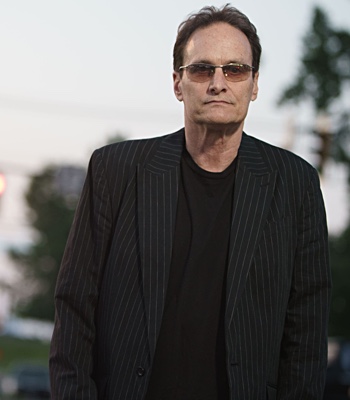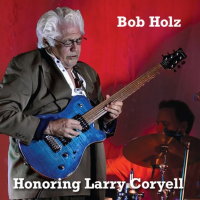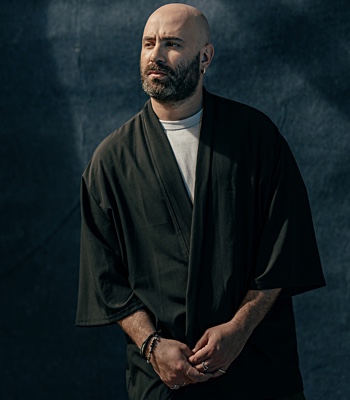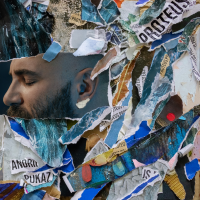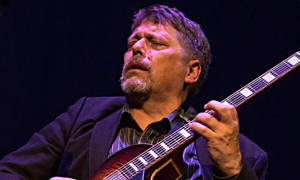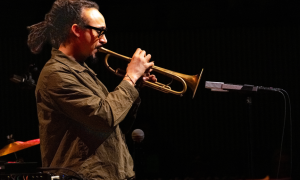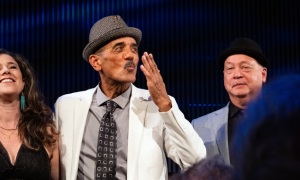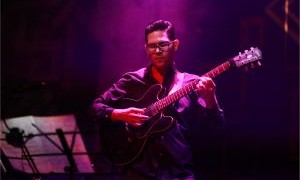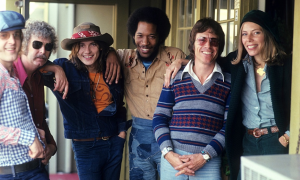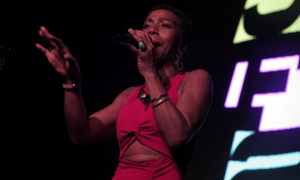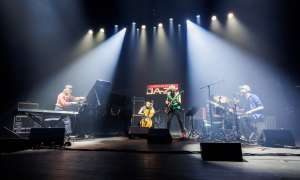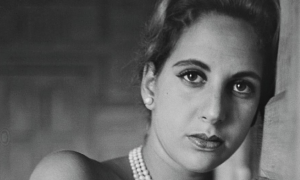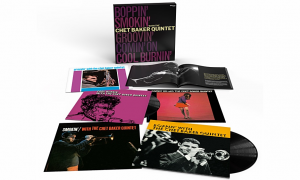Home » Jazz Articles » Live Review » Ottawa Jazz Festival Day 8: June 28, 2007
Ottawa Jazz Festival Day 8: June 28, 2007
Marking the beginning of the home stretch, Day Eight of the TD Canada Trust Ottawa International Jazz Festival was yet another lesson in diversity and the need for open-mindedness when it comes to accepting the broader spectrum that jazz has become. Yet, as demonstrated by the performances of organist Dr. Lonnie Smith, P.J. Perry (one of Canada's foremost reedmen), and oudist/vocalist Dhafer Youssef, there were other lessons to be learned as well.
Chapter Index
Dr. Lonnie Smith
His first appearance in Ottawa in a few years, organist Dr. Lonnie Smith, complete with turban and long robe, started out at an apparent disadvantage. While drummer Anthony Pinciotti made it to town, there were travel problems for guitarist Peter Bernstein. When the ensemble is a trio and you've lost one-third of it, what can you do?
Fortunately, Ottawa has someone capable of stepping in at literally the last minute. Called at 3:00 PM for this 5:00 PM Connoisseur Series show, guitarist/educator Roddy Elias arrived at Library and Archives Canada about twenty minutes before show time, armed with a guitar and no music. That might be daunting if not well nigh impossible for some younger musicians, but for a veteran like Elias—a guitarist who knows the Songbook without the help of musical notation or lead sheets, who has released a number of fine albums, and who lives equally comfortably in the classical world and the jazz sphere —it was just another day, another gig (albeit with a high-profile leader).
It took Elias a few songs to warm up, but from the start he delivered insightful solos treading the inside/ outside line, and demonstrated a huge set of ears capable of picking up on virtually everything that the others threw his way. By midpoint in the set he was on fire, swaying in his chair as he delivered soulful and energetic solo after solo, and began to toss back a few quips at Smith, who acknowledged him gratefully throughout the set.
Pinciotti, who has also worked with the legendary James Moody, was the perfect foil for this largely funky and fiery set. The volume in the room was a little on the expansive side, and as the set evolved Pinciotti hit the kit harder, delivering some impressive solos of his own as well as demonstrating ears like Elias' but also exuding the chemistry that comes from having played with Smith.
Smith may have walked to his center-stage seat at the Hammond organ with the help of a cane, but the minute he started to play he became energized, diving straight into the soul/jazz hybrid that's been his domain for over fifty years. With exclamations ("Yeah!" "Woa!" "Alright!"), Smith exhibited a facility with the pedals as impressive as his digital dexterity with the Hammond B3's double-decker keyboard. For the most part his ninety-minute set consisted of a mix of standards and originals, with emphasis on material from Jungle Soul (Palmetto, 2006). A showman as much as a player, Smith not only maintained strong eye contact with Elias and Pinciotti, but with his audience as well, dramatically raising his hands at times and attacking the organ with a youthful vigor belying his chronological age.
While his flamboyant flailing of arms and facial gesturing were an entertaining part of the whole package, a few songs into his set he began to make one of the biggest mistakes an artist can make—speaking to the audience in a manner guaranteed to insult and alienate a not inconsiderable share of those on hand. The result was a gradual bleed from the near-capacity crowd, though he still managed to receive a standing ovation at the show's end.
Smith first began a series of tasteless impressions of singers "who have covered my songs through the years." His Johnny Mathis impression wasn't bad, but his Stevie Wonder take was a miscalculation—in especially bad taste if not offensive when he stopped playing to put on a pair of dark sun glasses to complete the image. Things got worse when he suggested to the audience that the decline of jazz in the clubs began with John Coltrane. With an unexpected and inappropriate rant against free players, Smith's gratuitous, simplistic assessment of a complex art merely persuaded some listeners to head for the exits while contributing nothing to the standing ovation he received at show's end from those who'd remained.
It was an unfortunate situation, especially given how well Elias performed with no notice, no rehearsal and no charts. Smith is undeniably a talented player, but he'd have done better had he kept his opinionated views to himself. It's one thing to speak of such things in an interview; but at a festive and inclusive international event where people have paid good money to see not just him but artists covering the entire jazz spectrum, it's not only disrespectful to his audience but would seem to be a career-limiting move. There's little doubt that no small number of potential fans, after witnessing part or even all of the show, will never pay to see him again.
P.J. Perry Trio
Saxophonist/clarinetist P.J. Perry may not be well-known outside of Canada, but as a member of the popular Rob McConnell Tentet, he's garnered considerable acclaim at home. With bassist Neil Swainson—also heard earlier in the week at pianist Renee Rosnes' outstanding Connoisseur Series performance on Day Four—and young but surprisingly well-versed guitarist Reg Schwager, Perry delivered a relaxed and casual set for the 6:30 PM Great Canadian Jazz series that was nevertheless indicative of the kind of heady interplay possible in a small group setting.
The set drew primarily from sources outside the trio, though there were a few originals. Without a drummer, the swing component remained high, largely due to Swainson's immovable time and Schwager's in-the-pocket accompaniment. Schwager was a fine soloist as well, with both feet planted firmly in the tradition but maintaining a warm, user-friendly tone and lyrical bent that kept things both interesting and on track.
Perry, as always, delivered the goods with confident invention. Mainstream it may have been, but Perry, Schwager and Swainson proved it's still possible to find new cracks and crevices to explore in even the most familiar of tunes.
Dhafer Youssef with Jatinder Thakur and The Divine Shadows Strings
Delivering one of the most eagerly anticipated shows of the 10:30 PM Studio series, Tunisian-born/ Paris-based singer/oudist Dhafer Youssef boasts a career that has been gradually building up steam over the past few years by incorporating the musical culture of his birthplace with everything from the Norwegian Nu Jazz aesthetic to contemporary classical music. Appearing on albums including Norwegian guitarist Eivind Aarset's Connected (Jazzland, 2004) and fellow Parisian/guitarist Nguyên Lê's Homescape (ACT, 2006), his own discography reveals a forward-thinking artist who clearly believes that the undeniable evidence of diverse cultures coming together in music means hope for the ideological and political clashes so prevalent in a modern dysfunctional world.
As virtuosic as other well-known oudists including Rabih Abou-Khalil and Anouar Brahem, Youssef has taken a different path by processing his lute-like instrument electronically, and working with samples and loops similar to guitarist Bill Frisell's loop-heavy performance on Day Four. But unlike Frisell, who was working with a conventional configuration of bass and drums, Youssef was accompanied by tablaist Jatinda Thakur and The Divine Shadows Strings, performing material largely culled from Divine Shadows (Jazzland, 2006), which also featured a host of Scandinavian guests, including Aarset, percussionist Marilyn Mazur and sampler Jan Bang.
The Divine Strings—first violinist Joanna Lewis, second violinist Ivana Pristasova, violist Petra Ackermann and cellist Melissa Coleman (all of whom, like Thakur, reside in Vienna, Austria and are evidence of that city's cosmopolitan nature)—were more than simply accompanists for Youssef's warm oud and powerful voice. Instead, the quartet interacted liberally with Youssef—at times playing contrapuntal devil's advocate, elsewhere working in strong unison. Demonstrating drama and nuanced subtlety, one of the hundred-minute performance's finest moments was Youssef's "Cantus Lamentus," dedicated to Arvo Pärt. With its long, droning notes and tranquil tone, the work recalled the Estonian composer's tintinnabuli-styled Alina (ECM, 1999), but with Youssef's plaintive vocal, the piece departed from the near-ambient nature of its source for more dynamic territory.
It may not be jazz by conventional definition, but improvisation was easy to find, wrapped in clear form. Youssef and Thakur, in particular, interacted throughout the performance, feeding off each other's energy while never overpowering the strings. At one point Thakur's percussive but uncharacteristically gentle konnakol singing acted as a contrast to Youssef's more passionate delivery, ultimately coming together in cross-cultural harmony.
A well-deserved standing ovation at the show's end brought the group back for a piece that featured an innovative solo from Coleman, who explored not only the harmonic and dynamic range of her instrument, but its textural potential as well. Always an expressive instrument, it responded especially well to Coleman, who derived breathy, flute-like sounds from it that she would contrast with harsher bowing. Youssef, clearly as captivated by the solo as the audience was, would not let her finish when she gave her cue for the rest of the group to enter, instead pushing her to continue. When the group did finally enter, Lewis delivered a violin solo that, while honoring the conventions of the song's structure, was equally passionate and exploratory, additional evidence of so many artists who are refusing to be limited by traditionally accepted boundaries of style or genre.
Breaking boundaries is, in fact, what Youssef is all about. By combining Middle Eastern-informed music with technology, a classical string quartet and tables, Youssef demonstrated the power of music to break down walls. His singing—rarely articulating words but, instead, more purely emotional vocal sounds—was both mournful and hopeful. Words simply weren't necessary to convey his meanings; the emotions were never less than crystal clear. If it's possible to assimilate so many diverse elements into a new whole that still reflects the distinct cultures from which the end result is sourced, perhaps there's room for optimism elsewhere as well.
Tomorrow: Matt Savage Trio and Roy Haynes.
Day 1 | Day 2 | Day 3 | Day 4 | Day 5 | Day 6 | Day 7 | Day 8 | Day 9 | Day 10 | Day 11
Tags
PREVIOUS / NEXT
Support All About Jazz
 All About Jazz has been a pillar of jazz since 1995, championing it as an art form and, more importantly, supporting the musicians who make it. Our enduring commitment has made "AAJ" one of the most culturally important websites of its kind, read by hundreds of thousands of fans, musicians and industry figures every month.
All About Jazz has been a pillar of jazz since 1995, championing it as an art form and, more importantly, supporting the musicians who make it. Our enduring commitment has made "AAJ" one of the most culturally important websites of its kind, read by hundreds of thousands of fans, musicians and industry figures every month.






